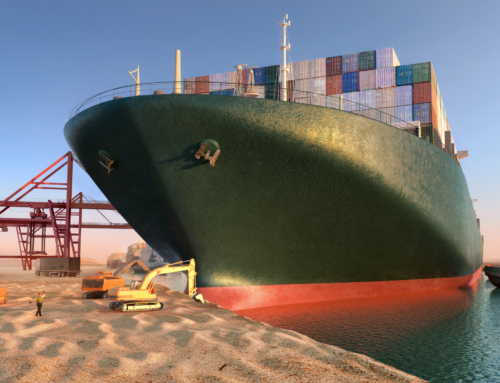Climate change and its consequences are painfully felt in many areas and increasingly pose a threat to people and the environment.
According to the German Weather Service (DWD), “around 9% more precipitation falls over the year than 140 years ago”. The increase in heat waves and hot days can also be clearly seen in the climate report of the German Weather Service (source: bkk.bund.de).
Direct consequences of the climatic changes are weather extremes such as heavy rain (or snow), heat (or extreme cold) as well as increasing storms. They have an increasing impact on infrastructure, health, water resources, ecosystems, and much more.
In the future, companies will also have to deal even more thoroughly with the possible effects and consequences of climate change. In May of this year, heavy rainfall caused the ceiling of a hospital delivery room to collapse and, at some point, electricity to fail.
It is not only the building structure and the location of the company that will have to receive greater attention in the future in the context of risk assessment for the company. Also larger personnel losses as consequence of health impairments or infrastructural problems, should be considered as possible scenario.
“Analyses by the DWD show that summer 2018 was the second warmest summer in Germany and the second driest since regular weather records began in 1881.” As a result of weeks of heat and lack of precipitation, there were crop failures, drinking water shortages, low river levels and ruptured roads.
According to BASF, the low water level of the Rhine near Ludwigshafen and the associated supply and production shortfalls have burdened the Group’s net income since summer 2018 with a total of about 250 million euros.
But other companies, too, experienced how the weather can have a direct or indirect impact on their operations, even though this had less media coverage, it was similar to BASF. Many companies were dependent on the use of certain raw materials, which at times were not available at all or only at a greatly increased price.
In the future, alternative transport routes, the use of possible other raw materials and other sources will have to be considered in order to prevent a loss of production in the event of an emergency.
The longer heat periods will lead to increased energy requirements for the operation of air conditioning systems, fans and other refrigeration equipment and thus to higher costs. Many companies are considering the purchase of air-conditioning equipment for the first time since the heat of 2018.
The human factor and its workplace have been largely ignored when considering the effects of drought and heat. Longer periods of heat can have health consequences, which in turn can lead to the loss of an employee due to illness. In the future, employers will have to deal even more intensively with the design of workplaces in order to offer employees a productive and healthy working environment even in extreme heat.
But we have to deal with a working environment that allows hardly any modifications. Under what conditions, for example, will construction workers, road construction workers and gardeners (to name but a few) work in the future to at least reduce health restrictions and hazards? What is still reasonable in the future?
Even though heatwaves and droughts have not yet occurred regularly, experts agree that they will occur more frequently in the course of climate change.
A resilient crisis management in the company should also take into account possible weather-related dangers for employees and company buildings in the future and have appropriate emergency plans ready.
Source: Kommission der Europäischen Gemeinschaft; Weissbuch; Anpassung an den Klimawandel: Ein europäischer Aktionsrahmen; 01.04.2009
Source: https://www.kma-online.de/aktuelles/klinik-news/detail/nach-heftigem-regen-stuerzt-decke-in-helios-klinik-ein-a-40701
Source: Bericht zur Risikoanalyse im Bevölkerungsschutz 2018, Risikoanalyse 2018; Drucksache 19/2521
Source: https://www.welt.de/wirtschaft/article189454417/BASF-Duerresommer-belastet-Konzern-mit-einer-Viertelmilliarde-Euro.html







